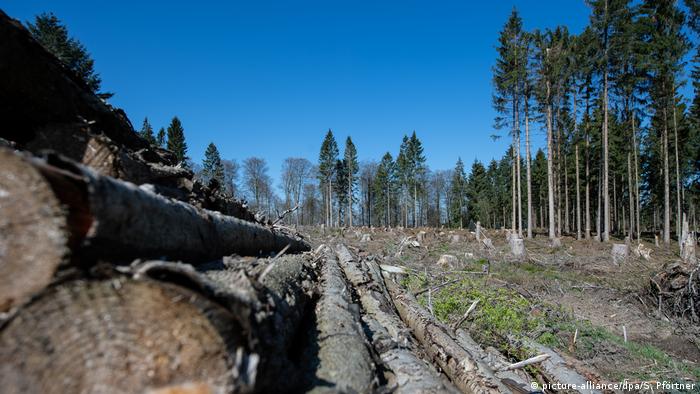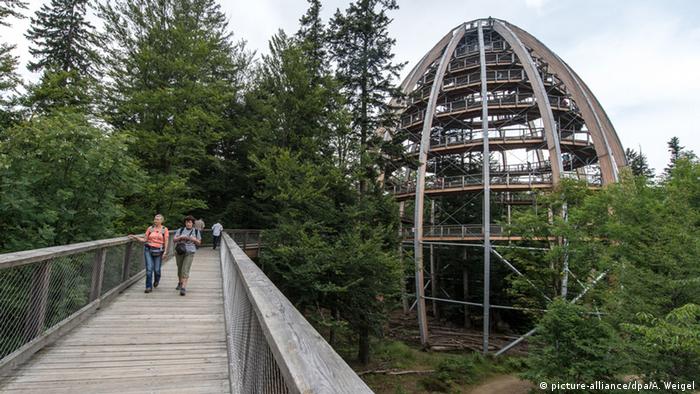Germany's forests decimated by insects, drought
Rising temperatures and droughts have made trees in Germany more vulnerable to attacks by bark beetles and other insects. That's led to a nearly sixfold jump in trees destroyed by pests over the past two years.

Around 32 million cubic meters (1,130 million cubic feet) of wood damaged by insects had to be removed from Germany's forests in 2019, the Federal Statistical Office reported Monday.
That total is three times higher than the 11 million cubic meters that was destroyed in 2018, and an almost sixfold increase on the 6 million cubic meters felled due to pests in 2017.
"In recent years, the native forests have suffered from drought and hot spells," the Wiesbaden-based statisticians said.
"Pests like bark beetle can multiply increasingly quickly in already weakened trees."
Beetle-infested trees have to be cut down to prevent the pest from spreading through entire forests.
Read more: Foresters fighting to save Germany's threatened woodlands
Alarming forest decay
The statistics office pointed out that more and more trees were also showing signs of drought stress, such as drooping leaves and thinning crowns. And then there are other threats such as storms, wildfires, snowfall and fungal infestations.
Last year, timber damaged by insects and other threats accounted for two-thirds of all felling in German forests, compared to 20% in 2010. Most of the species cut down — 83% — were conifers such as spruce, fir, pine and larch.
Restoring the German forest
Experts have warned that climate change and the proliferation of insects like the bark beetle are having a catastrophic impact on native forests.
"This combination did not exist before," Michael Müller, forest protection expert at the Technical University of Dresden, said.
"We are currently experiencing the most serious forest damage … since the beginning of regulated sustainable forest care and management, so more than 200 years ago."

FORESTS IN GERMANY PHOTOS
Berchtesgaden National Park
It's the only German national park in the Alps. Because of its high mountain location, with a bit of luck, hikers here can spot such rare animals as the alpine ibex, golden eagle, alpine hare and alpine marmot.
No comments:
Post a Comment